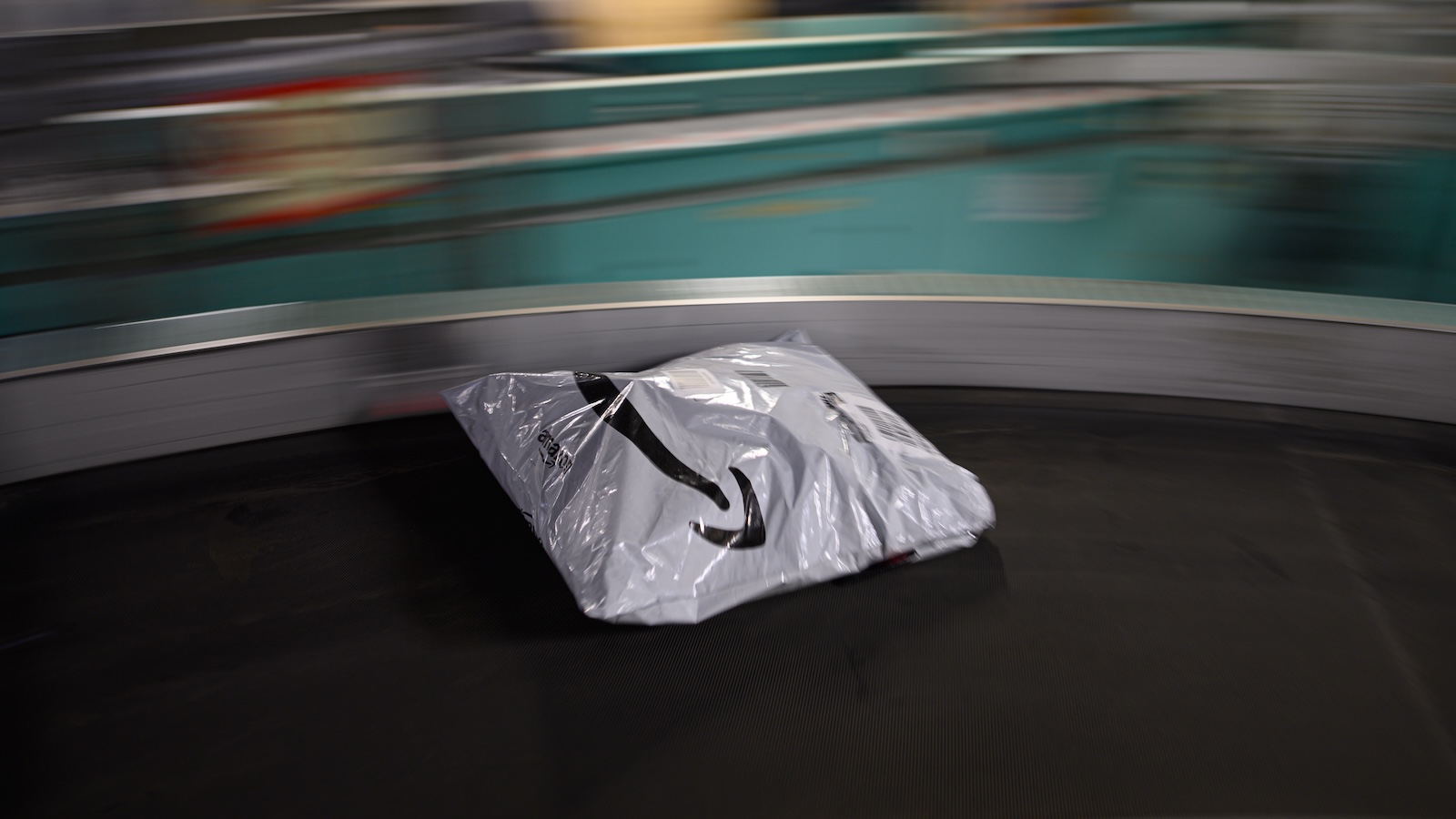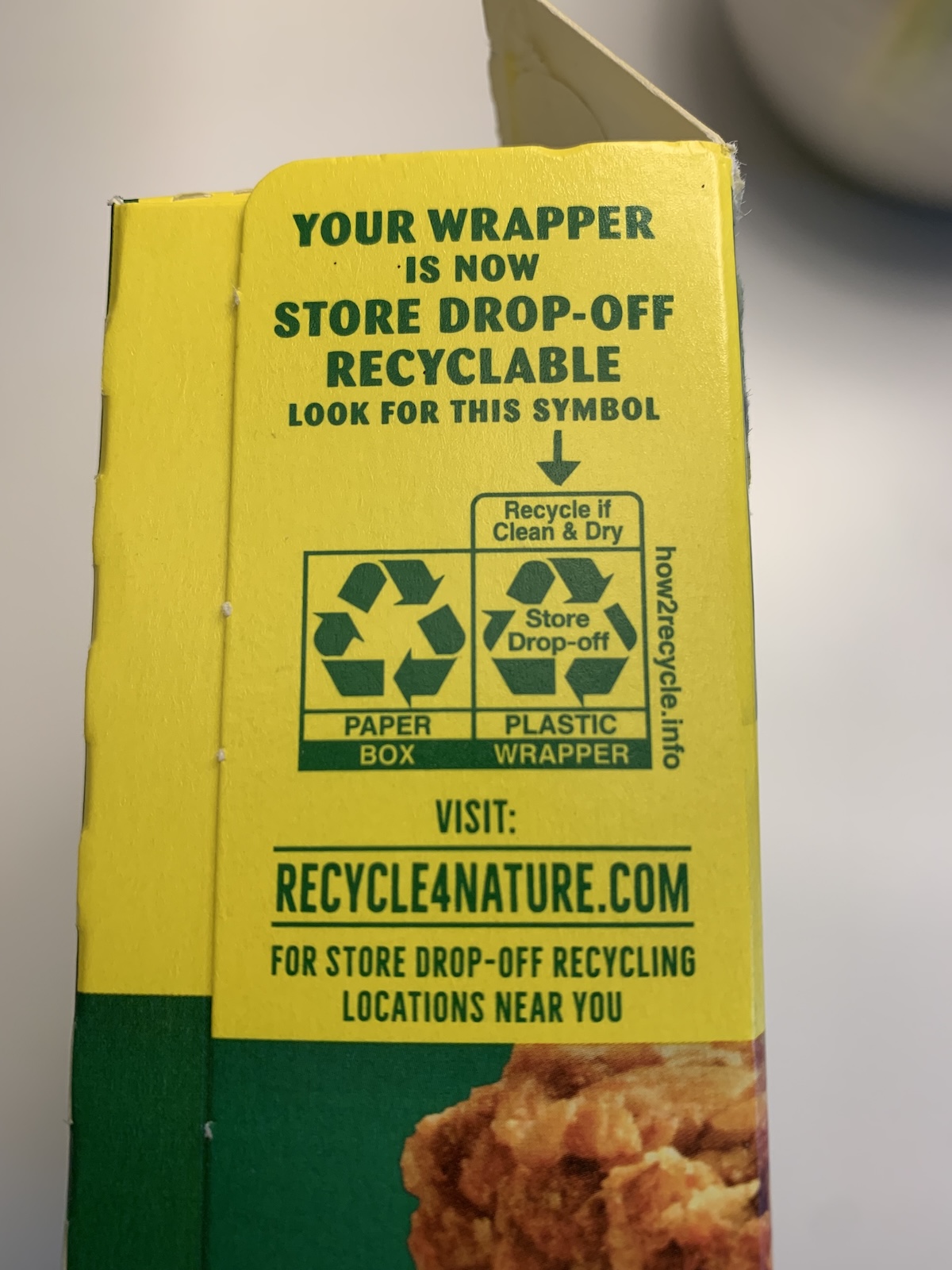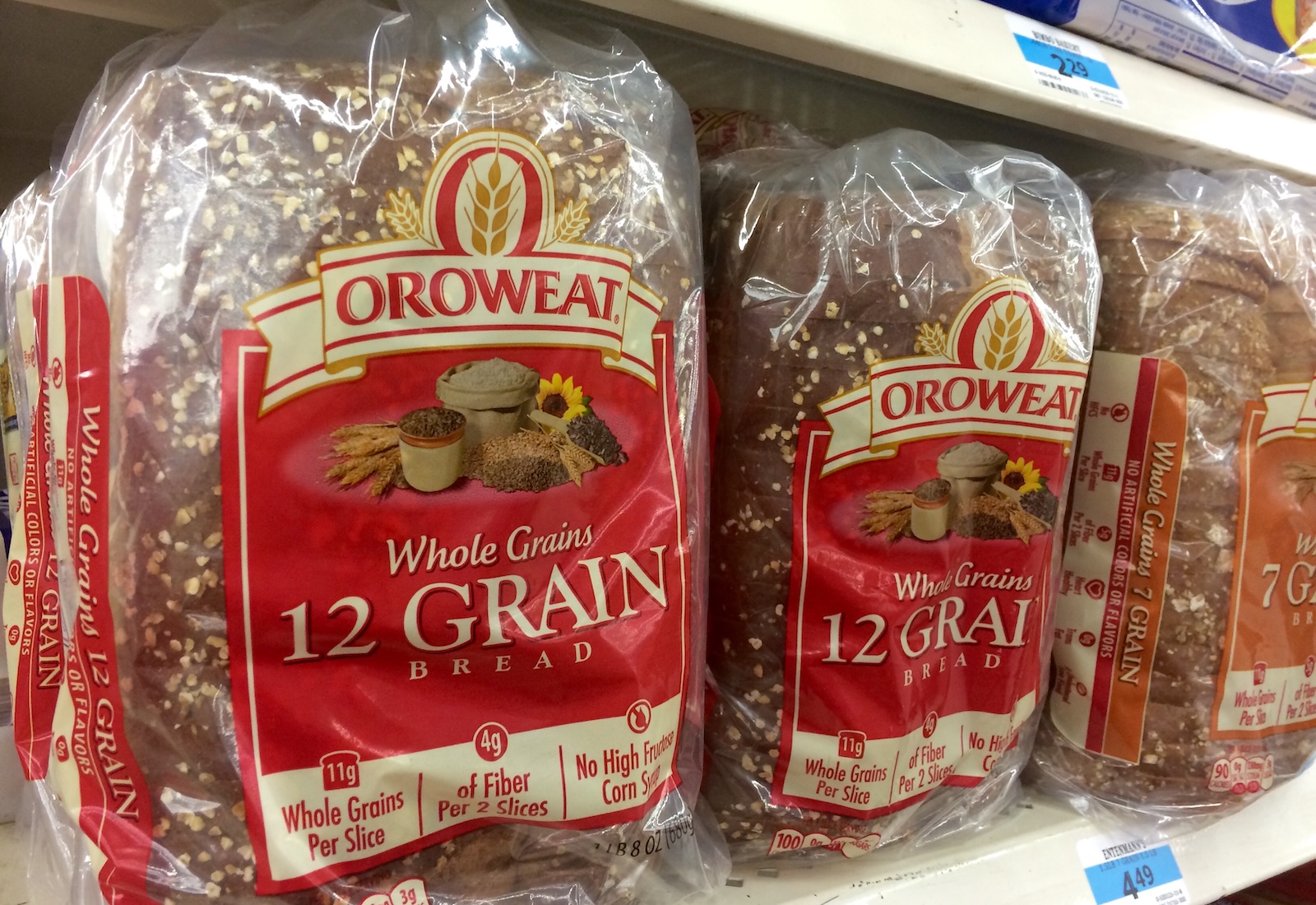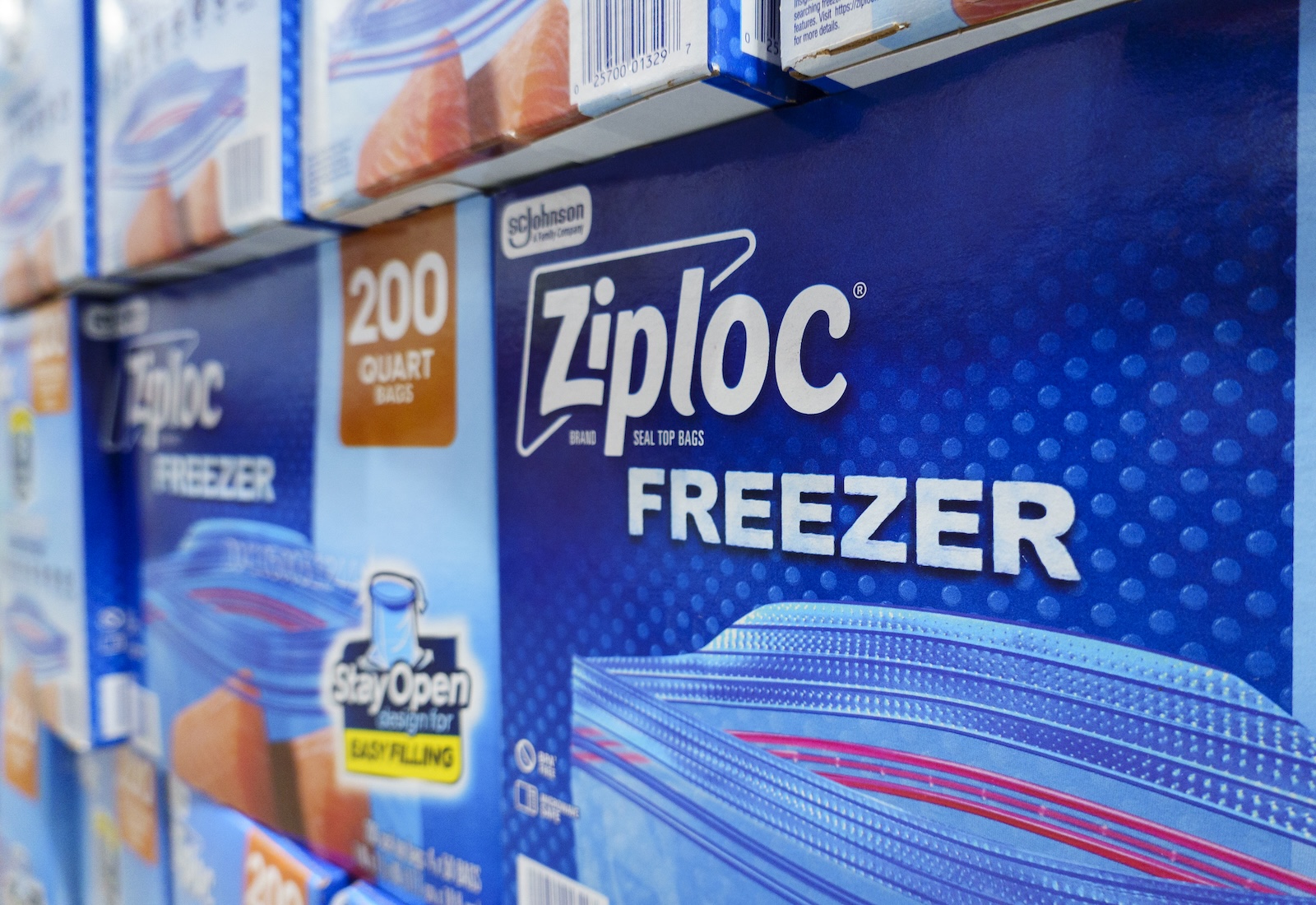Look at the packaging of any food or consumer item in the U.S., and there’s a good chance you’ll see a black-and-white decal: the iconic “chasing arrows” recycling symbol, along with the web address how2recycle.info.
As you might guess, the labels are meant to tell consumers how they can recycle the boxes, wrappers, and cans that they buy. They’re designed by an organization called How2Recycle, which sells its labels to hundreds of companies across the U.S.
Secure · Tax deductible · Takes 45 Seconds
Secure · Tax deductible · Takes 45 Seconds
It’s not clear, however, whether products featuring the How2Recycle labels are actually recyclable in practice. This problem is at the center of a new lawsuit.
On Wednesday, the city of Philadelphia sued two major companies that use the How2Recycle label and other recycling symbols on their plastic bags: SC Johnson, which owns Ziploc, and Bimbo Bakeries USA, the country’s largest commercial baking company and the owner of brands such as Oroweat and Sara Lee. According to the 47-page complaint, SC Johnson and Bimbo have engaged in a “coordinated campaign of deception” to convince consumers that their plastic bags are recyclable.
The companies’ practices “violate the law, deceive consumers, and contribute to environmental pollution and the disruption of recycling operations, costing the city thousands of dollars every year in remediation,” Philadelphia’s city solicitor, Renee Garcia, said in a statement.
Oroweat bread, a brand owned by Bimbo Bakeries USA, and Ziploc bags, owned by SC Johnson. Geri Lavrov / Getty Images; Kevin Carter / Getty Images
The complaint is part of a recent surge in state-, city-, and county-level litigation related to plastics recycling claims. Right now there are pending lawsuits from Baltimore; California; Connecticut; L.A. County; and New York state. A lawsuit from Minnesota against Walmart and the manufacturer of Hefty trash bags was settled last year.
But Philadelphia’s suit is the first to name-check How2Recycle, whose labels often instruct consumers to deposit used plastic bags at “store drop-off” locations, like at Walmart and Target stores. According to the complaint, most or all Ziploc and Bimbo products sold in Philadelphia featured these labels as of 2024, sometimes in addition to other recycling indicators and instructions.
The city says these labels mislead consumers into thinking they can buy plastic bags without creating waste, as long as they try to recycle them. This allegedly contravenes a consumer protection ordinance that Philadelphia enacted in 2024, which empowers the city to investigate deceptive business practices without waiting for the Pennsylvania attorney general or district attorney to do so.
What’s the connection between plastics and climate change?
In the context of plastics recycling lawsuits, “it’s the first time a city passed a law to give themselves the power to protect their citizens, protect their environment, from false claims,” said Jan Dell, who founded the nonprofit The Last Beach Cleanup and has launched many initiatives against misleading recycling labels. “They passed a law and now they’re enforcing the law.”
Philadelphia’s lawsuit cites research showing that most Americans believe the chasing arrows label used in any context means that a product is recyclable, and that recyclable products can be placed in their curbside recycling bins. But this is not the case. Philadelphia’s curbside recycling program, like most cities’, does not accept plastic bags because it is not economically practical to separate them and process them using special machinery.
According to a Department of Energy study published in 2022, only 2 percent of the U.S.’s low-density polyethylene, or LDPE — the type of filmy plastic used in bags — was recycled in 2019. The rate may be even lower for SC Johnson and Bimbo’s products: At an industry conference in 2018, an executive from SC Johnson said that only 0.2 percent of Ziploc bags are ever successfully turned into something new. There isn’t an end market for recycled plastic film because “it is perceived as inefficient and unprofitable,” the executive said.
Instead, plastic film — a category that includes bags as well as other thin plastic wrappers — becomes a contaminant in recycling equipment. It can jam machinery multiple times per day, causing facility-wide shutdowns so that workers can cut the film out using machetes. Philadelphia says this problem has increased waste and operating costs for its recycling plants.
The store drop-off labels provided by How2Recycle do not circumvent the shortcomings of curbside recycling, according to Philadelphia’s complaint. It says that drop-off boxes are “masquerading as recycling collection systems” but “actually function as trash cans in disguise.”

The complaint cites a 2023 investigation in which ABC News used tracking devices to follow bundles of plastic deposited in store drop-off bins across the U.S. The investigation found that only 4 of 46 trackers ended up at U.S. facilities that recycle plastic bags. Most of the rest went to landfills, incinerators, or transfer stations that don’t recycle plastic bags or send them to facilities that do. One of the trackers was dropped off at a Target location in Philadelphia. It went to a waste-management transfer station and was likely mixed with other trash to be burned or landfilled. Plastic in landfills breaks down into smaller and smaller pieces that leach chemicals and contaminate the environment.
Other investigations from Bloomberg Green, Environment America, U.S. Public Interest Research Group, and The Last Beach Cleanup have shown similar results. In 2023, the CEO of a company that had compiled a directory of plastic film drop-off locations abruptly took it offline, citing a lack of “real commitment” from the plastics industry. “There’s more of an illusion of stuff getting recycled than there actually is,” she told ABC News. “I just couldn’t be a part of it anymore.” (Ziploc packaging continued to direct people to this “effectively abandoned domain,” according to the Philadelphia complaint.)
Peter Blair, policy and advocacy director for the zero-waste nonprofit Just Zero, said Philadelphia’s lawsuit may be stronger than previous ones brought at the state or local level because it’s backed by the city’s consumer protection ordinance, and not just a set of green marketing guidelines from the Federal Trade Commission, or FTC. Claims made on the basis of the FTC guidelines usually require evidence of financial harm to consumers at the point of purchase — in other words, that they bought one product over another one explicitly because of its recycling labels. Philadelphia’s ordinance is broader, he said, and doesn’t rely on demonstrating that consumer connection.
Blair added that the Philadelphia lawsuit is the most direct challenge to the How2Recycle store drop-off label that he’s seen. “Let’s be clear,” he told Grist: “The How2Recycle label’s primary purpose is not to help consumers navigate recycling, but to protect the illusion that plastic recycling works.”
How2Recycle did not respond to Grist’s request for comment. In a 2020 report, the organization said that store drop-off only had “limited” promise to deal with the waste produced by plastic film. It announced in July that it would soon roll out new designs for its store drop-off labels featuring a take-back receptacle instead of the chasing arrows, but the designs still include the web address how2recycle.info.

Courtesy of Jan Dell
SC Johnson also did not respond to a request for comment. Bimbo said it had not yet been served the complaint but that the company is “committed to zero-waste across our operations, including consumer packaging, and to being a strong partner in every community we serve.”
Shortly before Philadelphia’s complaint was filed, Bimbo terminated a mail-in recycling program with a partner organization called TerraCycle, which was also named in the suit. TerraCycle said the lawsuit inaccurately described its program and that it “has always guaranteed that we recycle all the accepted waste sent to us.” The organization said its label, a stylized infinity sign, “was consciously designed to avoid confusion with the triangle recycling logo.”
Philadelphia’s lawsuit cites numerous other recycling claims made by SC Johnson and Bimbo, including web pages claiming that Ziploc bags are recyclable at “18,000-plus stores around the United States” and therefore “don’t need to end up in landfills,” and that recycling via a mail-in program would make “all” of Bimbo’s packaging “sustainable by 2025.”
The city is requesting an injunction ordering Bimbo and SC Johnson to stop marketing their plastic film as recyclable, as well as civil penalties and other payments for harms that may have been caused by the companies’ recyclability claims. This could include, for example, cost increases to the municipal recycling program linked to contamination with plastic film.
Dell said other government bodies should follow Philadelphia’s lead. She’s settled two plastics recycling-related lawsuits — one with TerraCycle and eight major consumer product brands, and another with a supermarket — but told Grist that “private litigation is hard” and “should not be relied upon to keep companies honest.”
The lawsuit will “hopefully motivate other cities to go, ‘We should do that too because it’s hurting our recycling systems,’” she added.




